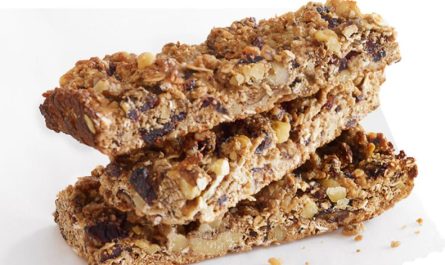The Ultimate Guide to Protein Bars
Types of Protein Bars
There are various types of protein bars available in the market with different ingredients and nutritional profiles. Below are some of the most common types:
Whey Protein Bars – Made primarily from whey protein concentrate or isolate, whey protein bars are a popular choice for bodybuilders and athletes looking to build muscle mass. They provide 20-30g of high quality protein per bar. Some popular whey protein bar brands include Optimum Nutrition, MusclePharm, and Nature’s Way Alive!.
Casein Protein Bars – Casein protein bars take longer to digest than whey, providing a slow, steady release of amino acids. They are a good option before bed to prevent muscle breakdown overnight. Casein protein bars contain 15-25g of protein on average. Examples include Quest Protein Bars and RXBar Casein Protein bars.
Plant-Based Protein Bars – For those following vegetarian or vegan diets, plant-based protein bars offer a protein-packed snack without animal ingredients. They obtain protein primarily from soy, pea, brown rice or hemp. Examples are Lärabars, Simply Protein, and PROBAR meal replacement bars.
Meal Replacement Bars – High in fiber, protein and complex carbs, meal replacement bars aim to replace one or two meals per day for weight loss or management. They provide 200-300 calories with 20g or more protein. Examples are ThinkThin High Protein Bars and IdealShape Meal Replacement Bars.
Energy and Granola Bars – More treat-like alternatives focused on taste, energy bars provide 150-250 calories from a mix of oats, nuts, dried fruit and chocolate. Brands include Clif Bar, Kind Bars, and Larabar.
Nutrient Composition
Protein is the main macronutrient found in protein bars but their compositions vary. Here is an overview of key nutrient profiles in common protein bar options:
Protein: Ranges from 10-30g per bar depending on brand and type. Look for at least 15g for muscle repair and growth support.
Fiber: Varies from 2-10g. Higher fiber bars keep you feeling fuller for longer.
Carbohydrates: Total carbs usually 20-30g with at least 5g coming from fiber to prevent blood sugar spikes.
Fat: 3-7g is common but varies widely. Choose lower fat options for general health.
Sugars: Less than 10g total is recommended to keep insulin levels stable. Some have 0-2g added sugars.
Other vitamins, minerals and nutrients vary but many are fortified with calcium, vitamins B12, D, E and nutrients like coconut oil. Read nutrition labels to compare.
Deciding Factors When Choosing Bars
With so many protein bar options on the market, it can be overwhelming to choose. Here are some key considerations:
Taste – Taste is an important factor for adherence. Try different brands to find flavors you truly enjoy.
Protein Source – Whey, casein, plant-based etc. depending on your dietary preferences.
Texture – Chewy or crunchy styles are a matter of preference.
Portability – Look for bars that don’t melt easily for travel and activities.
Price – Compare costs per serving between brands. Online subscription plans offer discounts.
Allergens – Avoid bars containing allergens like nuts, soy or dairy if sensitive.
Additional Nutrients – Consider bars fortified with vitamins, minerals and omegas.
Overall Ingredients – Choose simpler ingredient lists without artificial colors or flavors.
Remember to balance protein bars with a healthy diet full of whole foods for optimal nourishment. Aim for moderation with 1-2 bars maximum per day.
Common Questions About Protein Bars
Here are answers to some frequently asked questions:
How many protein bars can I eat per day? Experts recommend limiting protein bar intake to 1-2 per day maximum and replacing other meals with whole foods instead.
Are protein bars a meal replacement? While high in nutrients, protein bars alone don’t provide the fiber, vitamins and minerals of balanced meals. Use them as snacks between whole food meals.
Do protein bars help build muscle? Yes, protein bars can aid in muscle protein synthesis when consumed alongside resistance exercise, providing the bars contain 15g+ protein and are part of an overall calorie sufficient diet.
Are protein bars healthy for weight loss? Protein bars can be included as part of a calorie controlled diet for weight loss. Choose lower calorie, higher protein options and watch portion sizes.
Are protein bars bad for your stomach? Some people report digestive issues like bloating or gas from protein bars depending on ingredients and intolerances. Start with half a bar and drink plenty of water to avoid stomach troubles.
In conclusion, protein bars make convenient, portable snacks to fuel workouts when whole foods aren’t available. Just be sure to carefully select options that suit your macronutrient and lifestyle needs for the most benefit without unnecessary sugars or additives. Everything in moderation!



